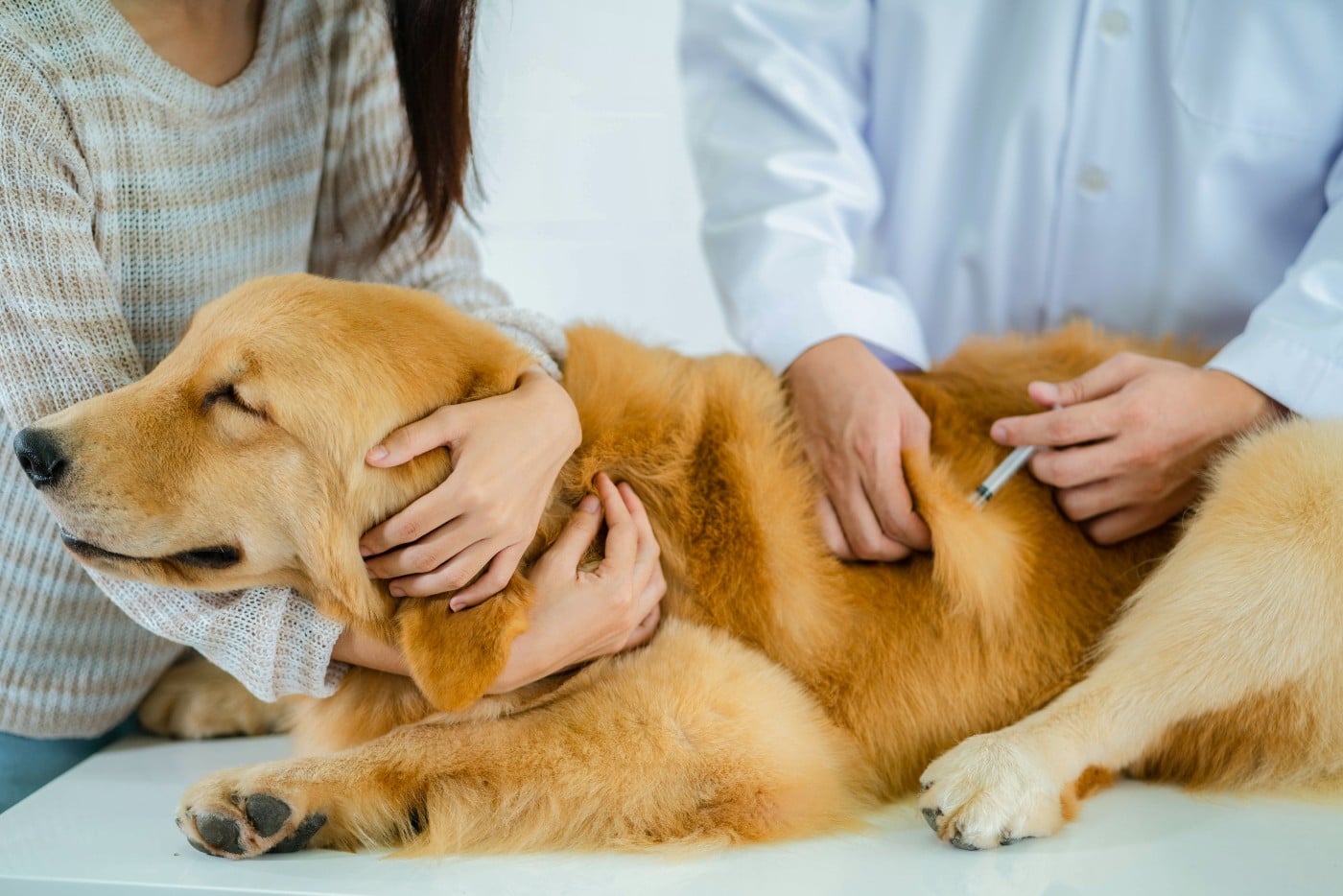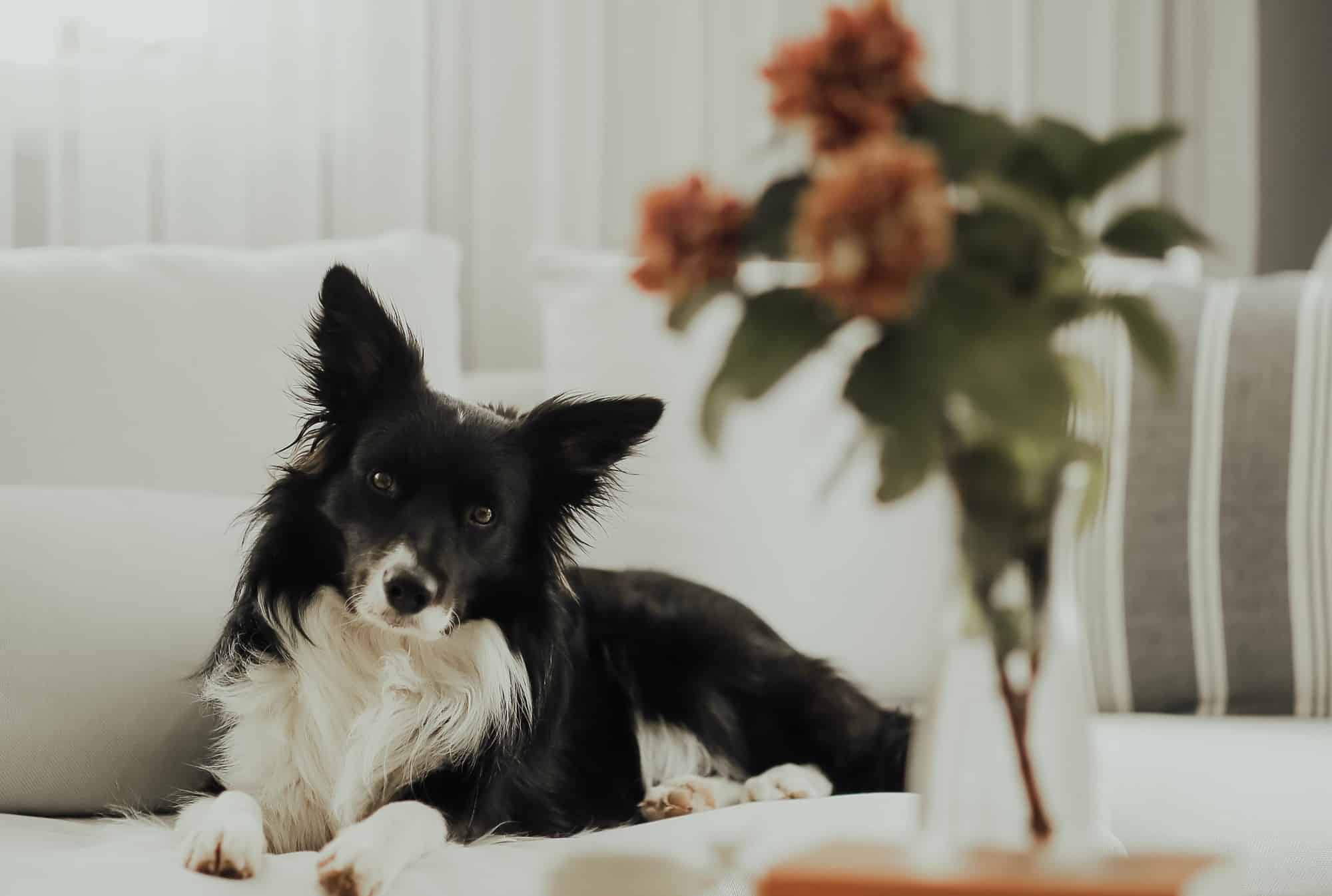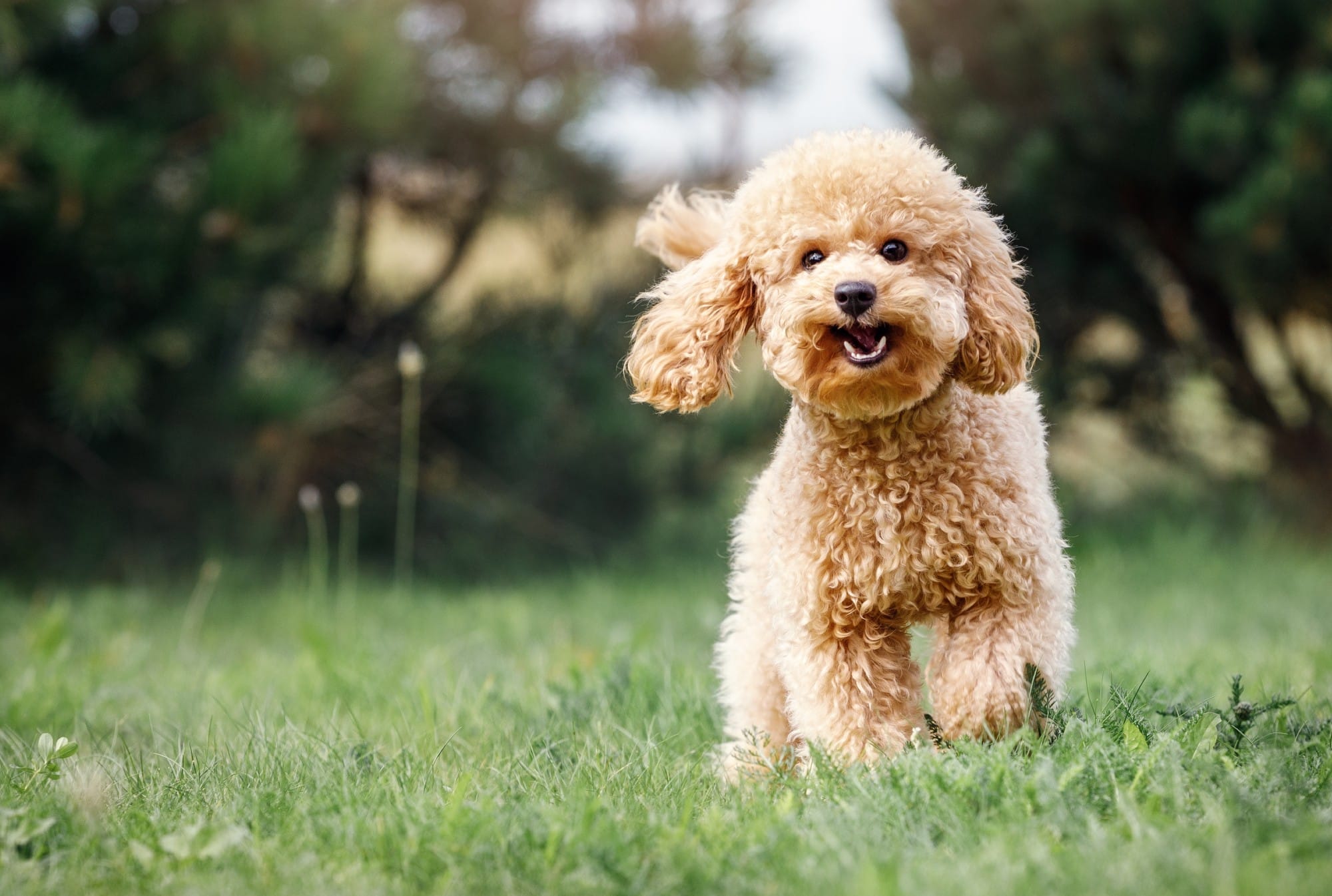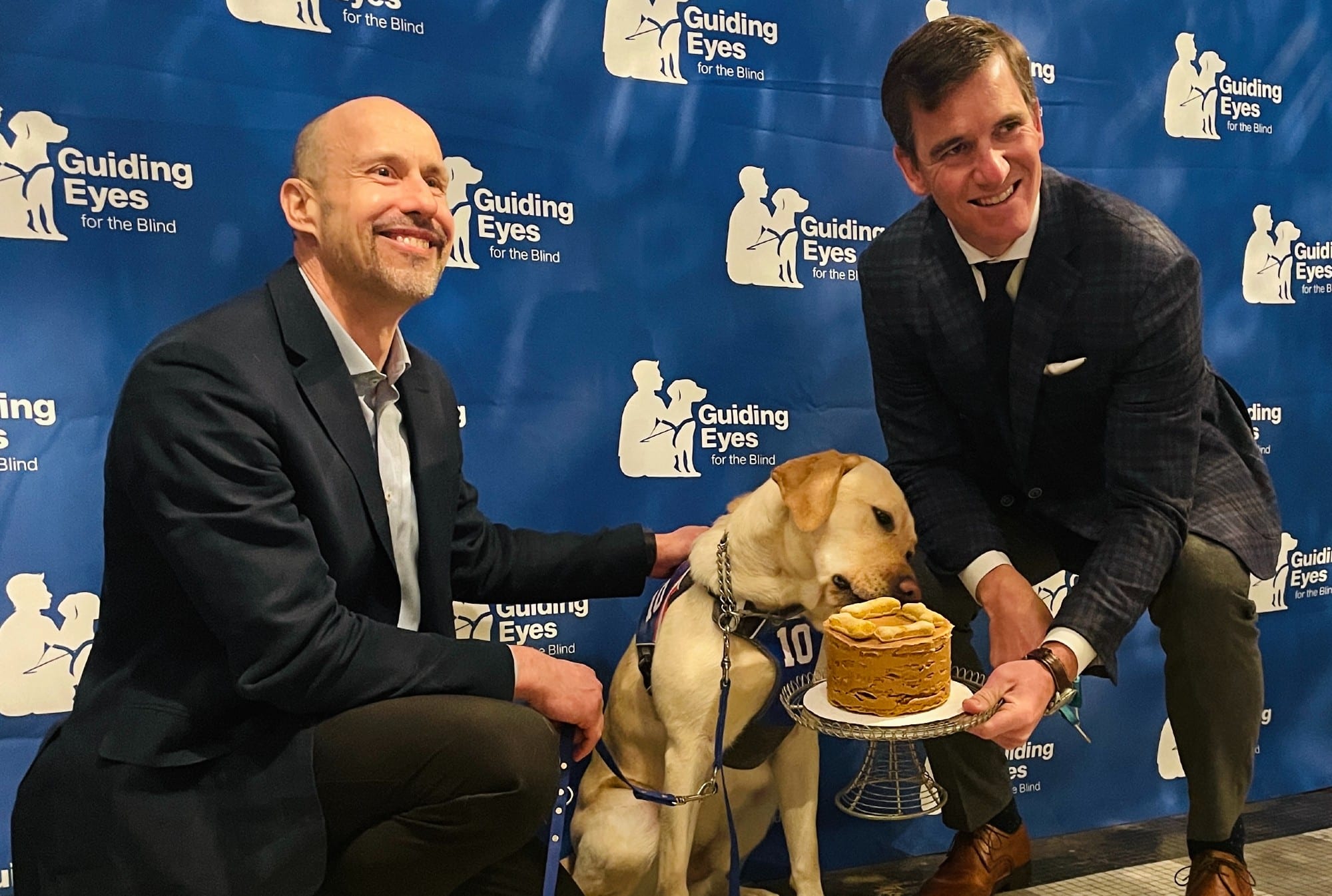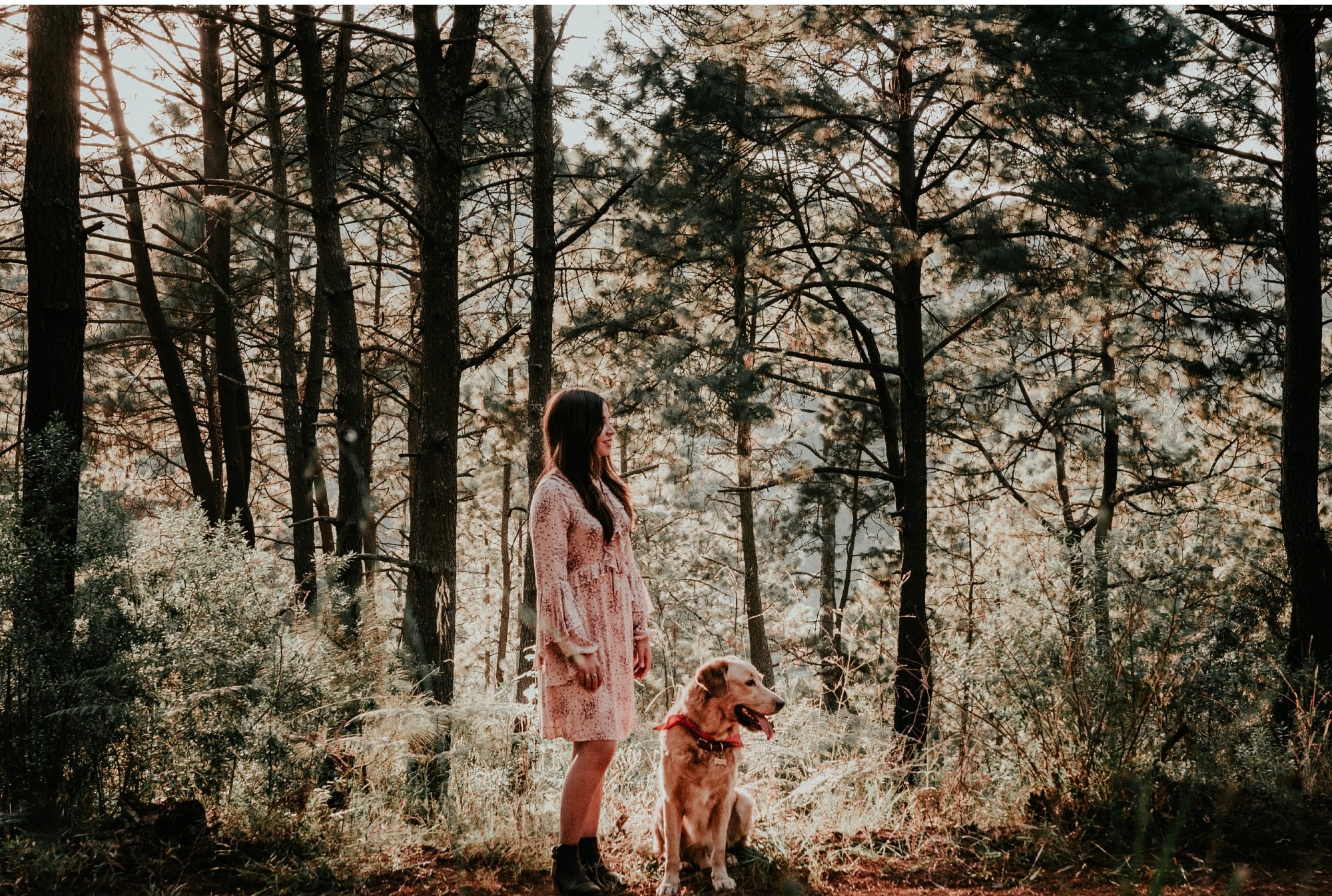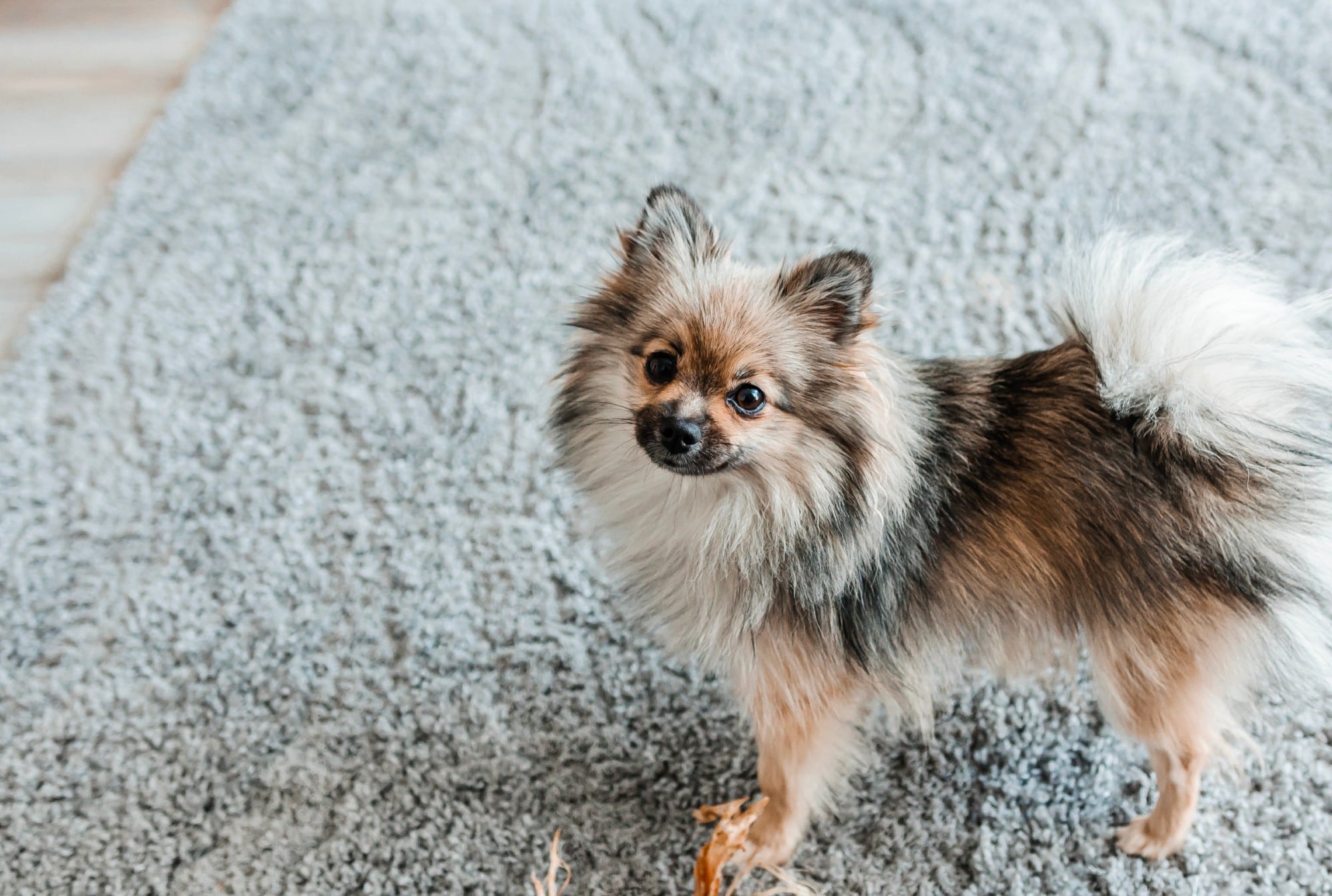As COVID-19 vaccinations are being rolled out to slow the spread among humans, new strains continue to emerge, with some infecting animals. It begs the question: Do our dogs need to get a Covid-19 vaccination? One group of researchers isn’t ruling it out as a way to curb the virus.
Scientists from England’s University of East Anglia and the Earlham Institute, along with those at the University of Minnesota published an editorial in Virulence, explaining why we may need to develop a COVID-19 vaccination for pets.
Related: Emergency Planning for Your Dog’s Care If You’re Hospitalized for COVID-19
In the article, the researchers stated that as the virus continues to evolve in animals and with the possibility of transmitting to humans, the occurrence “poses a significant long-term risk to public health,” later adding,”the vaccination of domesticated animals might be required to halt further virus evolution and spillback events.”
While there has been no cases in which we have contacted the virus from our dogs (or cats), Cock van Oosterhout, a co-author of the editorial and professor of evolutionary genetics at University of East Anglia, believes vaccinating some of our domesticated animals might be needed in the future and that we should prepare ourselves for this eventuality now.
“There is no evidence for dog to human Covid-19 transmission, so I do not want to worry people about that,” van Oosterhout tells This Dog’s Life. “The key point we are trying to make is that we need to be prepared for such eventuality, in the future, and that we must be proactive and not reactive when it comes to controlling the virus.”
Van Oosterhout explains how it is crucial to do everything we can to stop an outbreak from any emerging infectious disease from spreading.
“Due to the vast biomass of domestic animals — pigs, cattle, sheep, chicken as well as our dogs and cats — and the close contact we have with those animals, we need to be aware of zoonotic pathogens (like Covid-19) that can spill-over and spillback from animals to humans,” he says.
In the event that the virus evolved and caused disease among other domesticated species, the vaccine would reduce the number of susceptible “reservoir hosts” (i.e. species infected by a disease) that the virus can use to reemerge from and evolve in.
The Centers for Disease Control and Prevention (CDC) website states dogs can be infected with SARS-CoV-2 (the virus that causes COVID-19), from humans but currently they are considered low risk compared to other animals.
Related: How Dogs Are Comforting Us During the Coronavirus Pandemic
In November 2020, more than 15 million farmed minks were culled in Denmark after some contracted a mutated strain of Covid-19 and infected humans. Instances like this, van Oosterhout says, may no longer be needed with a vaccine and is why the development of one for domesticated animals is so important.
“We should be prepared and able to vaccinate in case the need arises,” he says.
The good news is researchers in the U.S. and Russia are in the process of creating a vaccine for minks and other pets. While it is on the scientific radar, van Oosterhout says it is not an indication that people suddenly need to vaccinate their dogs or other pets.
Van Oosterhout points out the topic of pet vaccination is just one topic of the editorial. The main message the researchers wanted to get across, he says, is that we all need to take the vaccine to prevent it from evolving into even more severe forms.
Related: Could Dogs Sniff Out the Coronavirus?
At this time, there have been no scientifically documented cases of dogs transmitting COVID-19 to humans. Although, van Oosterhout says that doesn’t mean you couldn’t contract it from an infected dog or dog that has been in an infected household.
So, should you be worried about your dog getting coronavirus? And what can you do to make sure your dog stays safe?
“No need to worry. But I suggest people do take care petting other animals; take the same action as fuelling your car: wear gloves, don’t touch your face, wash your hands,” van Oosterhout says. “Also, when you suspect you are infected by COVID-19, get tested and do not pet or cuddle your dog…try to keep a safe distance (2 meters) from your pet for as long as you are infectious. And get the vaccine — that will protect you, your family and your pets!”
Related: How to Protect Your Dog During the Coronavirus Pandemic













